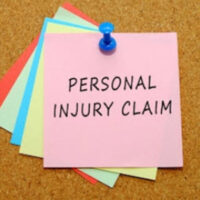Avoiding A Default Judgment

It comes as a surprise to many people to learn that most legal matters never actually make it to the courtroom and to trial. In fact, many of the cases that actually do go to trial are cut short through the submission of a variety of different motions by either party. One of these motions is known as a request for a default judgement, which, if granted, will result in an automatic ruling on behalf of the party who filed the petition. Whether you believe that a default judgement against another party is appropriate, or you recently received notice of the filing of a motion for a default judgment, you should speak with an experienced Fort Lauderdale personal injury lawyer who can evaluate your case and advise you as to your next steps.
What is a Default Judgment?
A default judgment is a type of ruling that is granted when one party to a lawsuit fails to comply with a court order. If it turns out that the failure in question makes it impossible to continue the legal proceedings, the complying party can file a request for default. If a judge grants this motion, he or she will issue a ruling in favor of the cooperating party. There are a variety of reasons why a judge would decide to enter a default judgement in a personal injury case. If a person fails to appear in court despite an official summons, for instance, a court would likely grant a default. Similarly, courts also enter default judgements if one of the parties is unwilling to comply with an evidentiary request that is vital to the case.
Defenses to a Default Judgment
Receiving a default judgment doesn’t mean that all hope is lost. In fact, there are a number of arguments that a litigant can use to have a default judgment overturned, including mistake or excusable neglect. To qualify for this defense, the defaulting party must be able to provide a satisfactory reason for the default. Typically, these reasons must be significant to qualify, such as an unexpected hospital stay, a serious medical condition, or a family emergency. In some cases, courts will even allow this defense if the defaulting party can prove that the parties were engaged in settlement negotiations and he or she had a good faith belief that the other litigant wouldn’t seek a default judgement.
Even if a judge decides that a party has satisfied this requirement, he or she won’t actually set aside the earlier default judgment ruling unless the petitioner also has a meritorious defense. Basically, this means that a case must involve a real dispute of law or fact. If, for instance, a case involved a car accident, the defaulting party would need to provide some evidence indicating that the other litigant was at fault for the crash.
Do You Need Help with a Personal Injury Claim?
To learn more about default judgments, including how to avoid or request them, please call 954-566-9919 and speak with one of the dedicated Florida personal injury lawyers at Boone & Davis today.
Resource:
flcourts.org/content/download/403125/file/922a.pdf
